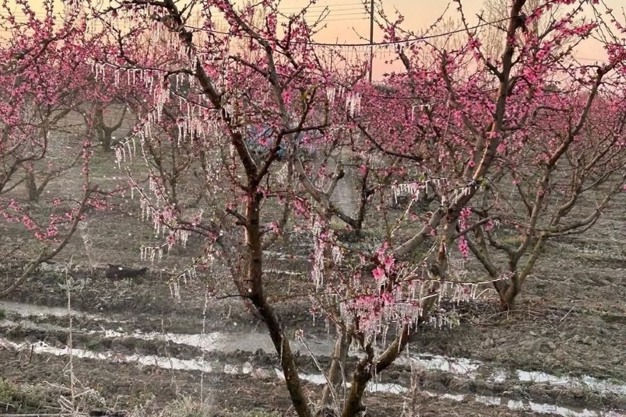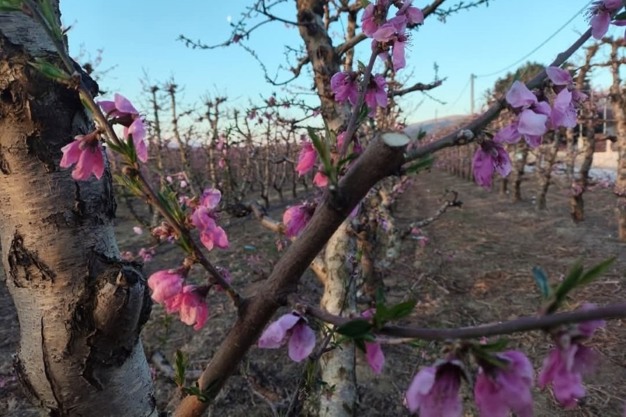A severe frost struck all types of stone fruit crops across Greece's major production zones yesterday and this morning. Local weather stations indicate that temperatures in the coldest, later-producing regions of Velventos and Giannitsa dropped to as low as -5,4°C in some specific areas. However, the Naoussa region, which is Greece's primary production zone for table peaches and nectarines, was in a more advanced blooming stage due to its earlier seasonality and appears to have been significantly affected.

"The frost punch was really strong, in the entire Naoussa plain, as we have recorded temperatures ranging from -1°C to below -3°C in certain geographical pockets," notes Mr. Vasilis Mpougas, director of the agricultural cooperative ASEPOP Naoussa, which specializes in table peaches, nectarines, and apricots. As he explains: "The bloom of stone fruits was at all different stages of development, meaning we had buds that had not yet opened, fully blossomed trees, and others already in the petal fall and early fruit formation stages. Where the fruit had begun forming, the damage is almost certain, as even -1°C can be disastrous in such cases."
According to Mr. Bougas, only a few growers managed to apply protective sprays before the frost set in, and a clearer assessment of the damage will be possible in the coming days. "As of today, temperatures will start rising again. It is still too early for a complete evaluation of the situation. In the coming days, we will have a clearer picture. Some small fruits that have already formed may appear unaffected now, but they will remain stunted and fail to develop properly. Unfortunately, frost is part of the 'game'."

"This year, our cooperative members f ocused on planting peaches. Several consecutive years of tree removals have helped improve product prices, encouraging growers to return to peach cultivation. For our part, we provide guidance on selecting red-fleshed peach varieties, which are suitable for our region, as well as apricot varieties resistant to sharka. If there are no further weather disruptions, we expect to begin harvesting apricots between May 15 and 20 and peaches by late May," the director of the Greek cooperative concludes.
For more information:
Vasilis Mpougas
ASEPOP Naoussa
Tel: +30 233 204 3206
Mob: +30 697 911 7397
Email: info@asepopn.gr
https://www.asepopn.gr/en/
